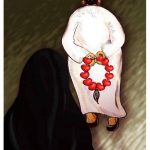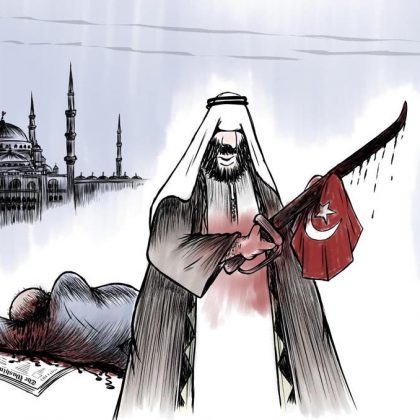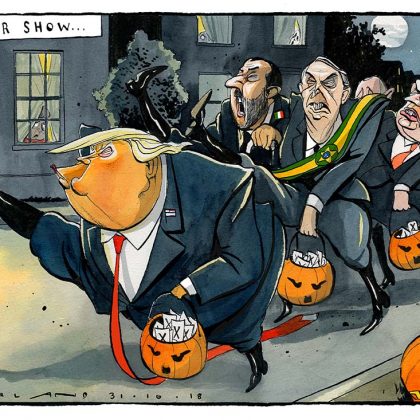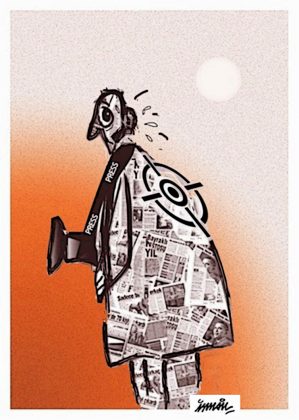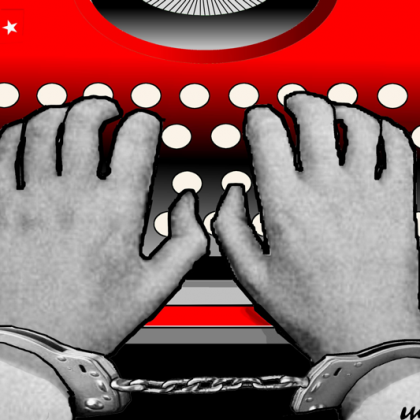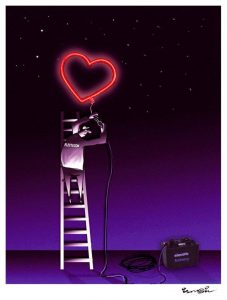
Of Roman origin, linked to ritual practices related to the cycle of nature, to the celebration of purification and fertility, the lupercalia, celebrated between the 13th and the 15th of February, was banned by the Catholic church in 494 and replaced by two other feasts, one to celebrate the purification (candlemas) and the other to magnify love and fertility (Valentine’s Day).
The rites and significance of the later celebration have evolved over time. The French historian Jean-Claude Kaufmann, considers that the valentine’s day was used in the late Middle Ages to help moving from a society of violence against women to learning gallantry, as a legacy of courtly love, and has been a real poetic turning point. For this historian, Valentine’s Day encourages men to be more respectful of their beloved partner. A significance very far away from a celebration of immorality, of nudity and indecency, associated with free sex, as many Muslim countries consider it and consequently ban it (with punishments for those who would nevertheless celebrate it), such as Pakistan, Saudi Arabia, Iran, Indonesia, Malaysia, Mauritania, Maldives, Egypt, etc., circa thirty countries in total. The Islamic website “islamhouse.com”, written in 115 languages, which aims to make Islam accessible to all and gives advices to Muslims, encourages believers in all countries not to celebrate this pagan feast contrary to Muslim values.
- © Ismail Dogan
- © Dilem - Valentine's day, the fest of enamoured: - "Your husband didn't offer you anything?" - "You should know that we have the same"
- © Le Hic - valentine's day, the loving Algerian
But Valentine’s day does not only embarrass Muslim traditionalists. For example, in India, Shiv Sena, the extreme right-wing part of the nationalist Indian party, is organizing demonstrations against Valentine’s Day, burning cards and posters, stomping on red roses. In Russia, the city of Belgorod has banned by decree to celebrate St. Valentine’s Day. For Shiv Sena, as for the authorities of Belgorod and those of many Islamic countries, this festival goes against their cultural traditions and symbolizes Western values and culture.
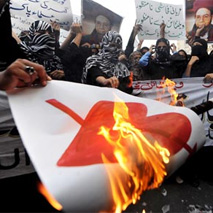
And yet in those countries where celebrating Valentine’s day is forbidden, many citizens want to celebrate this feast of love. In Iran, where it is very popular, it even became an act of rebellion against the police of thought. In fact, for many opponents, this defence of Islamic “values” is a pretext for fighting against individual freedoms.
Notwithstanding its mercantile dimension, and that it seems a little outdated and overused, in these times of #metoo and #balancetonporc, let us find anew the spirit of gallantry and respect of our beloved partners that it symbolised. And let us celebrate it at least as an act of solidarity with those who are impeded to do it.
Happy Valentine’s Day to all lovers of love, life and freedom!
- © Ismail Dogan - I love you
- © Mario Bochicchio (In Italian "ove" is an egg)
- © Kianoush





